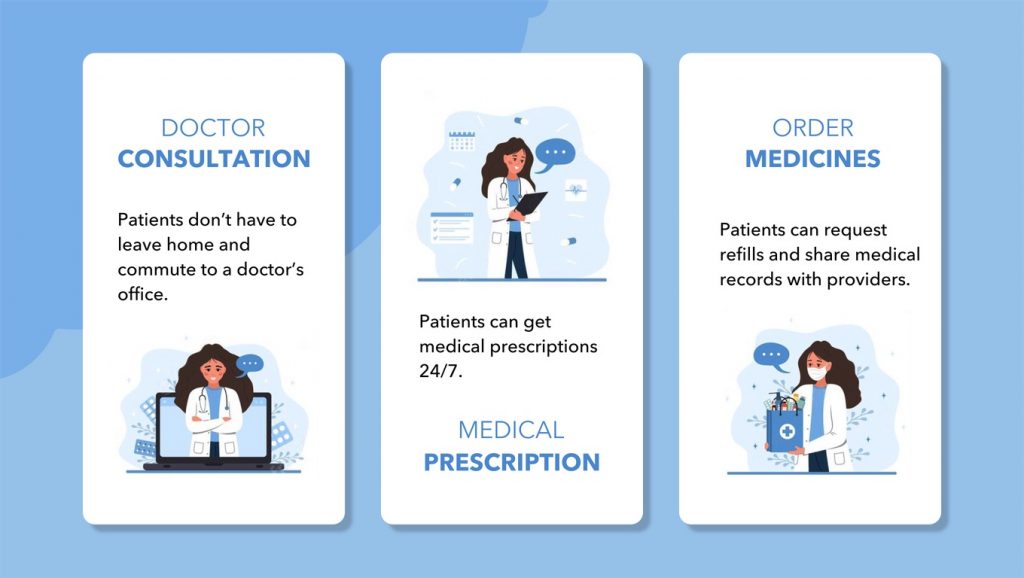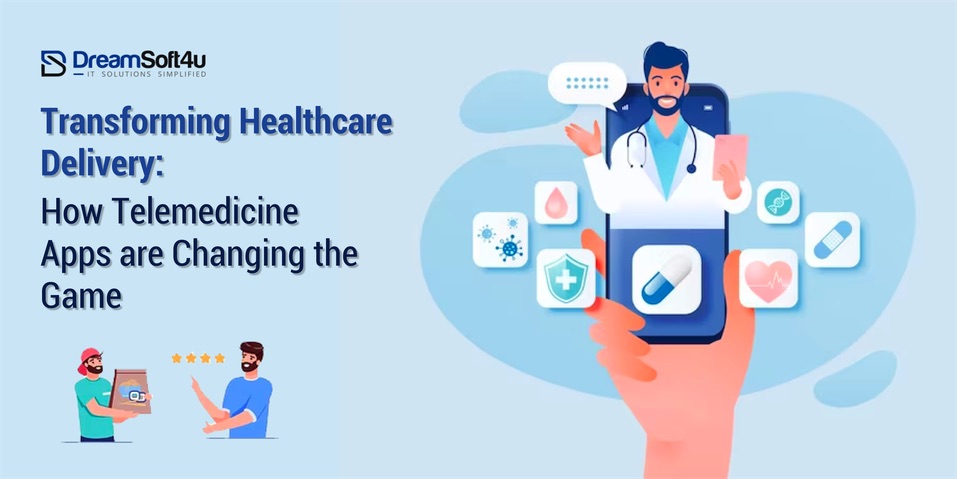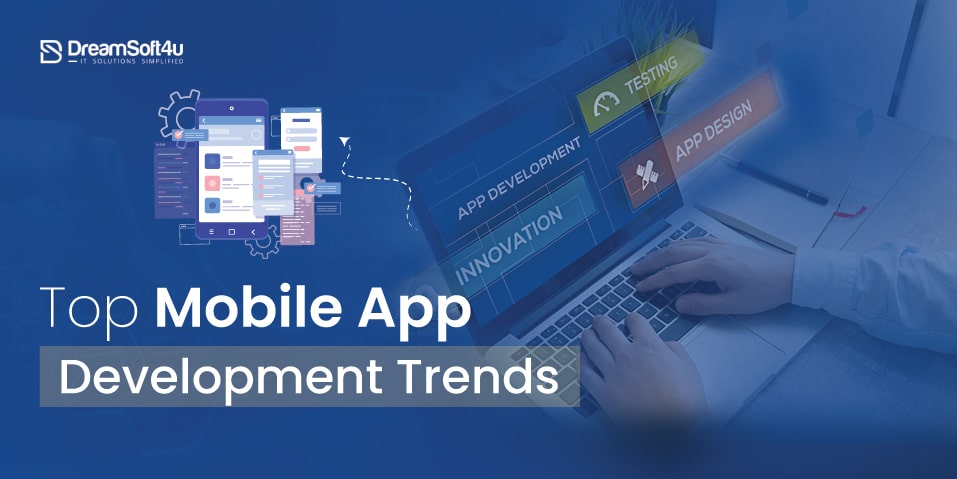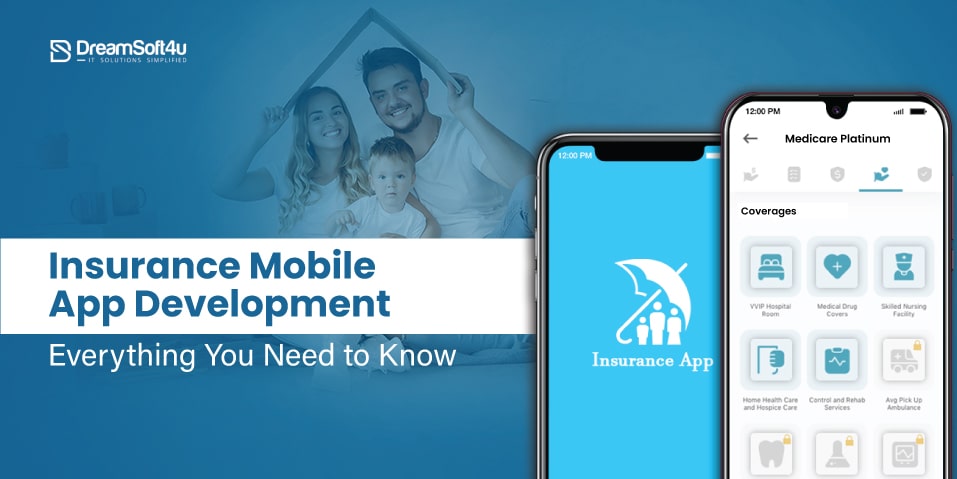The patient-doctor ratio across the world remains alarmingly low. However, telemedicine apps are helping bridge this gap by transforming how healthcare is delivered. Through video consultations, online messaging, and remote health monitoring, these digital solutions are bringing quality healthcare directly to patients’ homes.
In this blog, we will look at the big impact of telemedicine apps in healthcare. We will also discuss its key features and benefits, as well as look at some examples where telemedicine and healthcare software development has transformed care delivery and outcomes.
Table of Contents
ToggleEvolution of Healthcare Delivery
Traditional healthcare delivery has long grappled with challenges such as limited access, lengthy wait times, and geographical barriers. However, telemedicine app development services are helping overcome these traditional barriers.
Telemedicine has gained significant popularity, with adoption rates soaring post the pandemic. Primarily because telemedicine app development brings patients much-needed convenience. It is projected that more than 38% of patients will seek remote care in the future.
There are different types of app for telemedicine. Some provide basic care for common conditions like the flu, rashes, and sinus infections. Others are for specific needs like mental health, women’s health, and chronic condition management.
Advantages of Telemedicine Apps in Healthcare Delivery
- For starters, patients don’t have to leave home and commute to a doctor’s office or clinic. With an app for telemedicine, they can have a video visit using their smartphone, tablet, or computer, which saves patients time and hassle.
- These virtual visits are also more affordable and budget-friendly. Telemedicine apps provide basic consulting at a fraction of the cost. Visits are often less than $50, and many insurance plans cover telemedicine.
- Patients can also get medical guidance 24/7. The top telemedicine apps in healthcare offer on-demand video consultations day or night so you can get a diagnosis and treatment plan whenever you need it. No more waiting for the next available appointment!
- Telemedicine puts patients in control of their healthcare. Patients choose when and how they connect with doctors. They can also easily request refills, and access and share medical records with providers.
While telehealth app development can’t replace all in-person care, it enhances how we access basic healthcare services. They provide easy, convenient access to high-quality care and a range of useful features.
Key Features and Functionality of Telemedicine Apps

Scheduling and Appointments
With an app for telemedicine, Patients can see providers’ available times, book an appointment that works with their schedule, and get reminders so they never miss it. Some apps even have same-day appointment availability for more urgent needs.
Secure Messaging
Telemedicine apps offer secure messaging or chat features to communicate directly with doctors. Patients can share messages, photos, or videos related to their medical issues or condition. This can be helpful for quick questions or clarifications that don’t require a full appointment.
E-Prescriptions
During a telehealth visit, the doctor can send an electronic prescription directly to the local pharmacy. Patients can visit the pharmacy at their convenience to get the medicines. In some cases, they can even get it delivered to their home.
Health Records Access
Telemedicine apps also get rid of paper-based records. Patients can access their personal health records, test results, and more on their mobile itself. They can view, download and share health information in real time. Some apps for telemedicine even integrate with electronic health records systems at hospitals and healthcare organizations.
Overcoming Challenges in Telemedicine Adoption
While telemedicine app development offers many benefits, there are some challenges to overcome in gaining widespread adoption.
Privacy and Security Concerns
Many patients worry about the privacy and security of their health information. Healthcare organizations need to commit to compliance with HIPAA and other data protection laws. Using encryption, multi-factor authentication, and limiting access can help put people at ease.
Reimbursement Issues
While many health insurance plans now reimburse for telemedicine services, not all do. Patients may at times need to pay out-of-pocket. Healthcare organizations must advocate for policymakers and private payers to expand reimbursement policies to cover virtual care.
Trust Barriers
Patients may prefer in-person interactions, while some providers question the quality of virtual care. Targeted education on the benefits, as well as incentives and mandates, may drive increased use over time. However an app for telemedicine should remain optional, and in-person care must stay available when needed or preferred.
Let’s Discuss Your Project
Get a free consultation and let us know your project idea to turn it into an excellent digital product
98% Client Retention
Successful Telemedicine App Development Case Studies
PGCounty
PG County is a cutting-edge Telemedicine Platform that utilizes HL7 – FHIR interfaces to establish connectivity with electronic medical records (EMRs). It has over 2,000 registered users and made a significant impact on the lives of numerous individuals. Read in detail here.
Plum Telemed
Plum Telemed addresses the frustrations and complexities associated with scheduling appointments and accessing medical records. With Plum Telemed, patients can effortlessly book appointments, engage in online consultations, and conveniently manage their medical records.
Providers, on the other hand, can efficiently manage appointments, access patient health records, and mark their availability using a user-friendly dashboard.
Telemedicine Apps Success Stories
Telemedicine apps have been a blessing for rural areas, elderly patients, and individuals with chronic conditions who require regular follow-ups.
“As a busy working professional, I no longer have to take time off work for a simple consultation. I can connect with my doctor using an app for telemedicine, discuss my concerns, and receive a prescription.” – Sarah M.
“I stay in the countryside and accessing healthcare services is always challenging. With telemedicine, I can now consult with renowned specialists remotely. It has brought convenience and peace of mind to my healthcare journey.” – John D.
“Telemedicine app development has helped my patients manage chronic conditions more conveniently. I can regularly check in with patients, monitor their symptoms, and make timely adjustments to treatment plans. It has helped my patients live a better and healthier life.” – Dr. Emily R.
Future Directions and Innovations in Telemedicine Apps
Several exciting innovations are on the horizon that will continue to transform healthcare app development as well as telemedicine apps.
Artificial Intelligence and Automation
AI and automation will allow telemedicine apps to provide an even more personalized experience. Apps may use machine learning algorithms to track patient health data and habits over time, spotting patterns and providing customized recommendations.
Virtual and Augmented Reality
As VR/AR grows, it will surely make online doctor visits more immersive and engaging. We are already seeing VR/AR telemedicine use cases in post-injury therapy and mental health care sessions with guidance.
Health Monitoring Devices
Integrating health monitoring devices like fitness trackers, smart scales, blood pressure cuffs, and glucometers can provide physicians with a more complete picture of a patient’s health. Many telemedicine apps already sync with popular wearable fitness trackers.
Expanded Services
Telemedicine apps will likely continue expanding the types of care and services offered as the acceptance of virtual care grow. For instance, we can expect all future telemedicine apps to offer post-discharge follow-up care and nutrition counseling.
Considerations for Choosing the Right Telemedicine App
Privacy and Security
When choosing a telemedicine app, consider how well it protects patient information and health data. Look for apps that use encryption to secure data and messages in transit and at rest. Check if the app has received HIPAA compliance certification, which ensures it meets privacy and security standards for handling health information.
Ease of Use
It should be simple to schedule a video visit, share health details, and message your doctor. The platform should also work well on both the web and mobile. It’s crucial to have the flexibility to access care when and where you need it.
Check Reviews
Read reviews to determine how easy the app is to navigate for people of all technical abilities. The easier an app is to use, the more likely you’ll stick with it and utilize telemedicine when needed.
Range of Services
Determine the types of services you want to access through telemedicine. Some provide diagnosis and treatment only for minor acute conditions, while others offer care for chronic conditions as well. The wider the range of services offered, the more useful the app will likely be.
Cost and Insurance
See what out-of-pocket costs you may incur for copays or coinsurance. Some telemedicine companies charge membership or subscription fees for unlimited access to care which may or may not be covered by insurance. Compare the costs of different options to determine the most budget-friendly and cost-effective app.
Looking for Telemedicine Application Development in the USA?
Partner with healthcare technology experts to build secure, scalable telemedicine apps!
Conclusion
So that’s how telehealth app development is transforming healthcare delivery for good.
- No more waiting weeks for a quick follow-up or consultation.
- No more taking time off work or school to sit in a waiting room.
Healthcare is now available on-demand and at your fingertips!
These innovative apps put patients in control of managing their health and wellness like never before. While telemedicine will never replace in-person care, it provides a convenient alternative for basic needs. Pretty soon, accessing quality care will be as easy as hailing rideshare or ordering takeout. Telemedicine apps are truly transforming healthcare for the better.
Frequently Asked Questions
Here we have answered some questions that people also ask about telemedicine apps.
Can I use a ready-to-use app for telemedicine?
Yes, you can use ready-to-use apps for telemedicine, which provide a quick and convenient solution for healthcare providers to start offering virtual consultations.
Can I customize telemedicine apps?
Yes, you can customize telemedicine apps to align with your specific needs and branding, ensuring a personalized and seamless experience for both doctors and patients.
Is telemedicine app data secure?
Yes, telemedicine app data is secure, employing robust encryption and compliance with HIPAA to safeguard patient information and maintain confidentiality.
What is the Cost To Develop An AI App
AI apps also have many subcategories, ranging from healthcare to medical logistics. Moreover, an AI healthcare app can also vary from one to another depending on factors like app complexity, features, business goals, etc. So the cost to develop an AI app will also vary. Follow this link for a free quote.

















